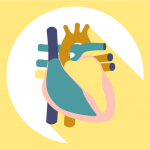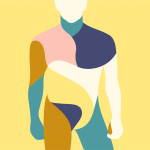Transthyretin Amyloid Cardiomyopathy (ATTR-CM)
This in-depth guide to Transthyretin Amyloid Cardiomyopathy (ATTR-CM), a condition that can cause the heart to have issues pumping, offers insight on treatment and the latest research from leading doctors.
Learning About ATTR-CM
Explore popular ATTR-CM articles and topics
Managing ATTR-CM
Treating ATTR-CM
In 2019, the FDA approved tafamidis (Vyndamax), a once-daily oral medication that blocks the breaking up of transthyretin proteins and the subsequent formation of amyloid fibrils.
Another form of tafamidis, called Vyndaqel, is also a once-per-day regimen, but each dose includes four pills. The two forms of tafamidis treat both kinds of ATTR-CM: the hereditary type caused by a mutation of a transthyretin gene and the wild type, which has no genetic component and is triggered by unknown causes.
Tafamidis doesn't cure the disease or reverse its course. But the drug can slow its progress by interfering with the breakdown of transthyretin proteins and the subsequent formation of amyloid fibrils. "What Vyndamax does is stabilize this abnormal, misfolded protein so that more of doesn’t get deposited in your heart," Dr. Dwivedi says, adding that other medications are in the works that may help stop production of abnormal forms of transthyretin in the liver.
Dr. Aeshita Dwivedi, a cardiologist at Lenox Hill Hospital/Northwell Health, discusses treatment options.
Treating Symptoms
While newer drugs are helping to target the causes of ATTR-CM, treatment for this condition still requires medications, devices and procedures to manage the complications of a weaker heart.
New York cardiologist Dr. Philip Weintraub explains that treatment decisions usually follow the identification of symptoms and their causes. "It invariably depends on the symptoms that if one has shortness of breath, for example, one has to ask themselves why is there a shortness of breath?" he says. "And if I were to use a diuretic, an agent that would decrease the free water that is in the body, would I allow that individual to empty the lung that is congested and improve the quality of their life. One also has to ask themselves as to what other conditions can be provoked."
Other medications that may be necessary to treat the heart failure symptoms associated with ATTR-CM include:
- Anticoagulants (blood thinners) to reduce the risk of blood clots, especially if atrial fibrillation or other arrhythmia is present
- Antihypertensives to lower blood pressure
- Cholesterol-lowering medications, such as statins
- Digoxin, to treat an irregular heartbeat
Dr. Weintraub also notes that ATTR-CM is associated with sudden cardiac arrestthe unpredictable and immediate halt to heart function and breathing. As a result, standard care for ATTR-CM can often require the use of an implantable cardioverter defibrillator (ICD), a small battery-powered device placed in the chest to shock the heart if signs of sudden cardiac arrest emerge.
Another treatment, called cardiac resynchronization therapy (CRT), uses a special implanted pacemaker to help coordinate the beating of both sides of the heart to help ensure the pumping function is as strong and effective as possible.
One other implantable device, a left ventricular assist device (LVAD) may eventually be necessary if the heart reaches a point where medications and lifestyle changes are no longer enough to accommodate a weaker heart. An LVAD is a mechanical pump that maintains the heart's pumping ability.
Of course, medications and devices can be more effective if you help them along with a heart-healthy lifestyle. Some important changes you may need to make with ATTR-CM include:
- Eating a heart-healthy diet, such as the Mediterranean-style diet
- Limiting or avoiding alcohol
- Maintaining a healthy weight
- Monitoring your blood pressure
- No smoking
- Sleeping at least seven hours a night or napping to make up for interrupted nighttime sleep
- Supervised exercise
- Tracking your fluid intake because heart failure often means fluid retention






